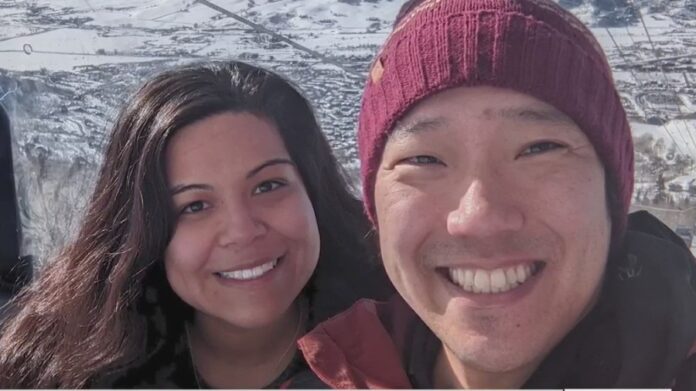GREENSBORO, N.C. (WGHP) — There are a lot of things that most people take for granted – don’t think much about. Most people can look at their parents and see their own genetic makeup and know the family history of various health issues.
Not Alex Tomalski.
Alex was born in South Korea and when he was a few weeks old, he was adopted by an American family of Polish ancestry and grew up in Raleigh, with knowledge of that family; institutional knowledge.
“For me growing up, it was always just what I’ve been told from my parents and not having any family background,” says Alex. “Getting older and having and starting my own family, there are common risks that I just needed to be aware of. So, this program gave me that opportunity as were before, maybe didn’t need to know or didn’t want to know, but when priorities change and now with a family coming along, these are just things that I needed to know ahead of time.”
The program that Alex refers to is a new one from Cone Health. They’ve partnered with a dozen or so other health systems and universities to do gene mapping on anyone to learn what may help them avoid a health crisis down the road.
“It’s a free, genetic test where the idea is that we’re trying to identify genetic changes in individuals who may not have even realized that they had anything present,” says Dr. Chad Haldeman-Englert, who is the medical director of Cone’s new Precision Health division. “So, could you potentially test someone, find that they have a genetic change to a condition that you could maybe screen for and treat before it would become an issue for them, later one. Cone Health is realizing that precision health is something that is part of the future of medicine, where you can identify genetic changes in individuals or use other aspects about them to try to target or manage their conditions.”
Once the individual’s gene map is completed, they get advice on how to live their lives for the best health they can have.
“What I enjoy about this program is that they have a genetics counsellor as well too that you can partner with to learn more because even the things that I did not know about at the beginning, I didn’t know the extra details either of,” says Alex.
Dr. Haldeman-Englert says there will be societal benefits, as well.
“We do believe that the cost could come down overall in healthcare because we’re identifying individuals before it gets to the point where their particular condition might be requiring a lot of healthcare involved,” says Dr. Haldeman-Englert.
It can be scary to find out you have a genetic mutation that can lead to a serious health issue but the sooner you know about it, the better for dealing with it.
“You do have that moment of risk if you will,” says Alex. “But knowing that I could have preventative measures because of this information now was really – is really the important thing about this is there’s a preventative action that I can take and if I choose not to, well, that’s on me.”
See more on this innovative new program in this edition of The Buckley Report.
